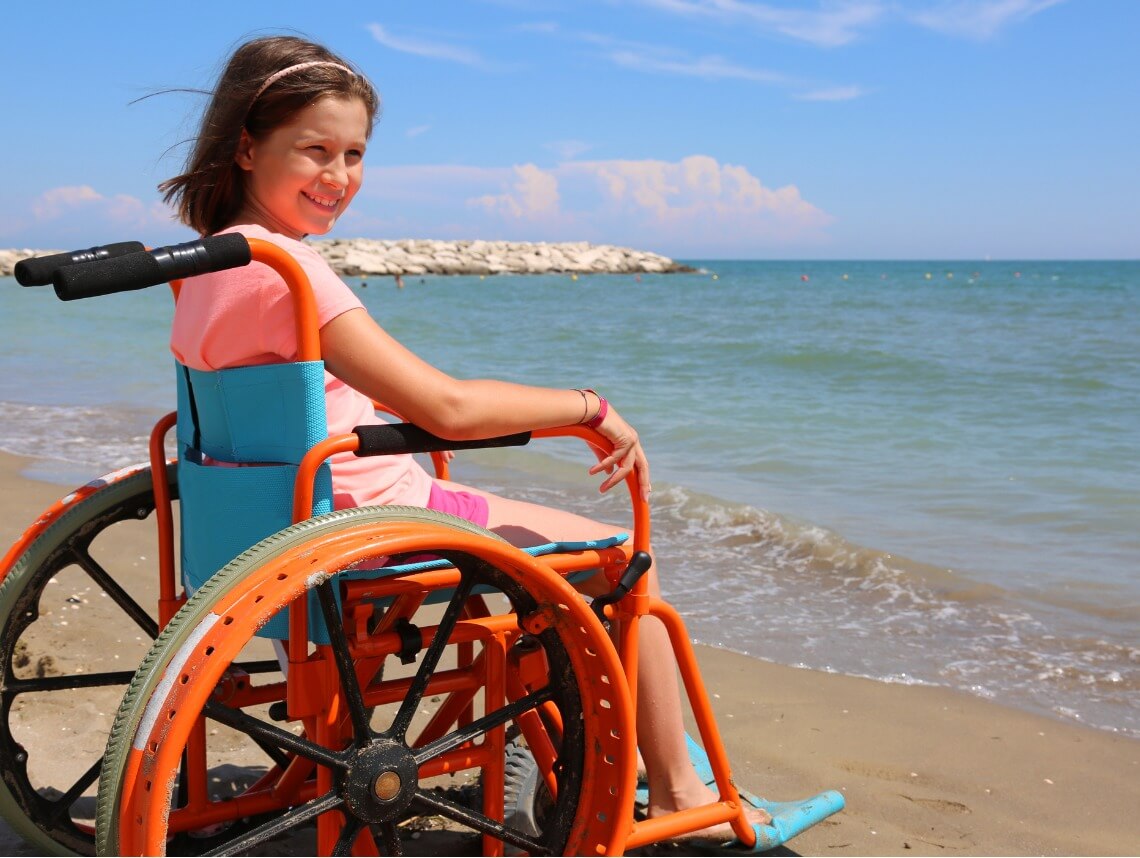One of the most unfair things about life is receiving a dire medical diagnosis for a child. It’s heartbreaking at any age, but it feels almost sinister when it relates to someone who’s just starting their life. And if the diagnosis is for a lesser-known condition, you’re left with a million questions. What does Duchenne’s muscular dystrophy mean? How will it impact your child’s life? And, what can you do at home to make their life easier?
What is Duchenne’s Muscular Dystrophy?
Duchenne’s muscular dystrophy is a serious genetic muscle disorder that causes degeneration and weakness. Over time, the muscles become less flexible — affecting a child’s ability to walk and breathe. By the time a child with Duchenne’s muscular dystrophy reaches the age of 15, they are most likely in need of a wheelchair. The condition may also affect the connection between brain cells. When this occurs, the child experiences speech delays, learning disabilities, and has difficulties paying attention to anything for extended periods of time. This also makes them more likely to develop attention-deficit hyperactive disorder (ADHD) or dyslexia.
Signs are usually noticeable when the child is a toddler. You may notice they have difficulties sitting up and walking. If they already know how to walk, they may fall often. Children with Duchenne’s muscular dystrophy also tend to have larger calves than other kids the same age. Eventually, even the muscles that control the heart and lungs can stop working. That said, there are plenty of children with Duchenne’s who live well into adulthood.
Home Care Tips for a Child with Duchenne’s Muscular Dystrophy
While the disease has a great impact on your child’s ability to do everyday activities, there are several things you can do at home to improve their quality of life. These include:
- Learn about range of motion exercises. A physical therapist can teach you exercises that will assist your child with joint flexibility and keeping their back straight.
- Get a sleep mask. Duchenne’s muscular dystrophy can also affect the eyelids, making it difficult for your child to fully close their eyes while sleeping and getting a good night’s rest.
- Massage your child’s joints. This can help ease joint pain when heat therapy and over-the-counter medications aren’t doing the trick. Ask the pediatrician about specific massages for joints and muscles.
- Get them devices that will help with their mobility. Having leg braces, back supports, or a walker will help give your child a sense of independence while doing simple tasks.
- Install home adjustments. Since your child will have difficulties moving around the house, installing ramps, wider doorways, and stairlifts will help them move from room to room easier.
- Arrange for special education. Whether your child is experiencing speech delays, dyslexia, or behavioral problems, they may need education professionals with proper training to assist them.
When to Get Home Health Care for a Child with Duchenne’s Muscular Dystrophy
A child with Duchenne’s muscular dystrophy requires around-the-clock care. And, depending on the severity of the condition, they may also need someone to monitor their breathing. In addition, if the child is of school age, they will need special assistance with their homework. Add to this physical therapy, administering medications, and taking care of siblings, work, and home responsibilities, and the term it takes a village takes on new meaning. If you’re becoming stressed, overwhelmed, or isolated, a pediatric home health caregiver can help provide assistance or respite.
Contact Sonas for Home Health Care in Florida
It can be hard to balance your time between work, home, and caring for a child with muscular dystrophy. Home health care providers offer the support you or your loved one needs.
If you or a loved one are considering Pediatric Home Health Care Services in Florida, contact the caring staff at Sonas Home Health Care. Call today at (888) 592-5855.
This blog was reviewed by Jillian Miller BSN, RN — Director of Nursing for Sonas Home Health Care’s Tampa Bay market — for clinical accuracy. Jillian Miller has been a nurse for 16 years — working primarily in pediatrics. She believes the best part of working with the pediatric population is when you see smiles from clients when you first enter the room. She loves seeing the difference you can make in families’ lives while providing the best care possible for them.

